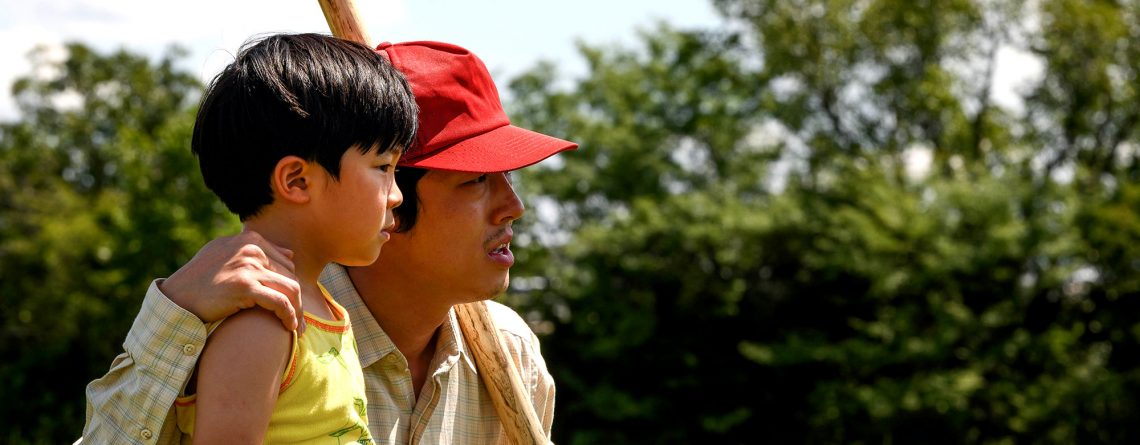« Denver Film Festival - Thou Shalt not Hate | Main | Denver Film Festival - Wet Season »
October 24, 2020
Denver Film Festival - Minari

Lee Isaac Chung - 2020
A24
Minari is about a Korean-American family in rural Arkansas, in the 1980s. The film was inspired by Chung's own childhood, when his father tried farming with the aim of growing Korean style vegetables for the immigrant market. What is unexpected is that Chung's film does not have the cliches one might expect in a story about Asian immigrants in America, especially in a region one might perceive of as less hospitable. Most of the cultural conflicts happen within the family.
The family has western names. The father, Jacob, is the idealist who puts everything into creating his dream farm. The wife, Monica, is more pragmatic. The children, David and Anne, presumably were both born in the United States based on what's is gleaned from the parents' discussion of the past. The family generally converses in Korean with a smattering of English. The parents also work in a hatchery, dividing baby chickens by sex, the females saved to be someone's future dinner. Monica's mother, Soonja, joins the family to look after the children during the day. Home is an unpromising looking trailer home that leaks during rainstorms, seemingly planted at random in this remote area. The family is a mix of cultural influences - nominally Christian, but choosing a local church rather than a Korean Christian church in a larger town. There is also the regional culture addressed with the use of a professional dowser to irrigate the farm. A slight running gag involves the literal reading of "Mountain Dew". The title refers to a plant, a water celery used for a traditional Korean dish, that successfully grows unattended by a stream near the farm.
The drama, as such, is understated. David has a heart condition, but being six years old, does not let his condition restrain him from vocally rebelling when asked to share his room with his grandmother, culminating in his pulling a prank on her. Jacob takes on an older man, Paul, a Pentecostal Christian given to mystical reveries in the field, conspicuous with his dragging a large cross on Sundays on a country road. Chung sometimes stops the narrative just to allow the viewer to soak in the environment, the greenery that surrounds Jacob. While drawing the attention of the viewer to bucolic scenery, Chung does not use the kind of stylized abstractness that draws attention to itself as in the films of Terrence Malick.
The film stars Steven Yuen as Jacob. Yuen previously starred in Burning, the South Korean film inspired by a short story by Haruki Murakami of the same title and William Faulkner's short story, "Barn Burning". While not a deliberate connection, the tangential relationship is still worth noting. In the previous works, the burnings are the cause of damaged relationships. In Chung's film, the burning is the catalyst for the family to heal, illustrated by the shot of the four closely sleeping together on their living room floor. And while there is some publicity touting Yuen as a possible "Best Actor" contender, I say it is little Alan Kim as David, in an accomplished acting debut, who is the one to watch.
Posted by Peter Nellhaus at October 24, 2020 07:54 AM
